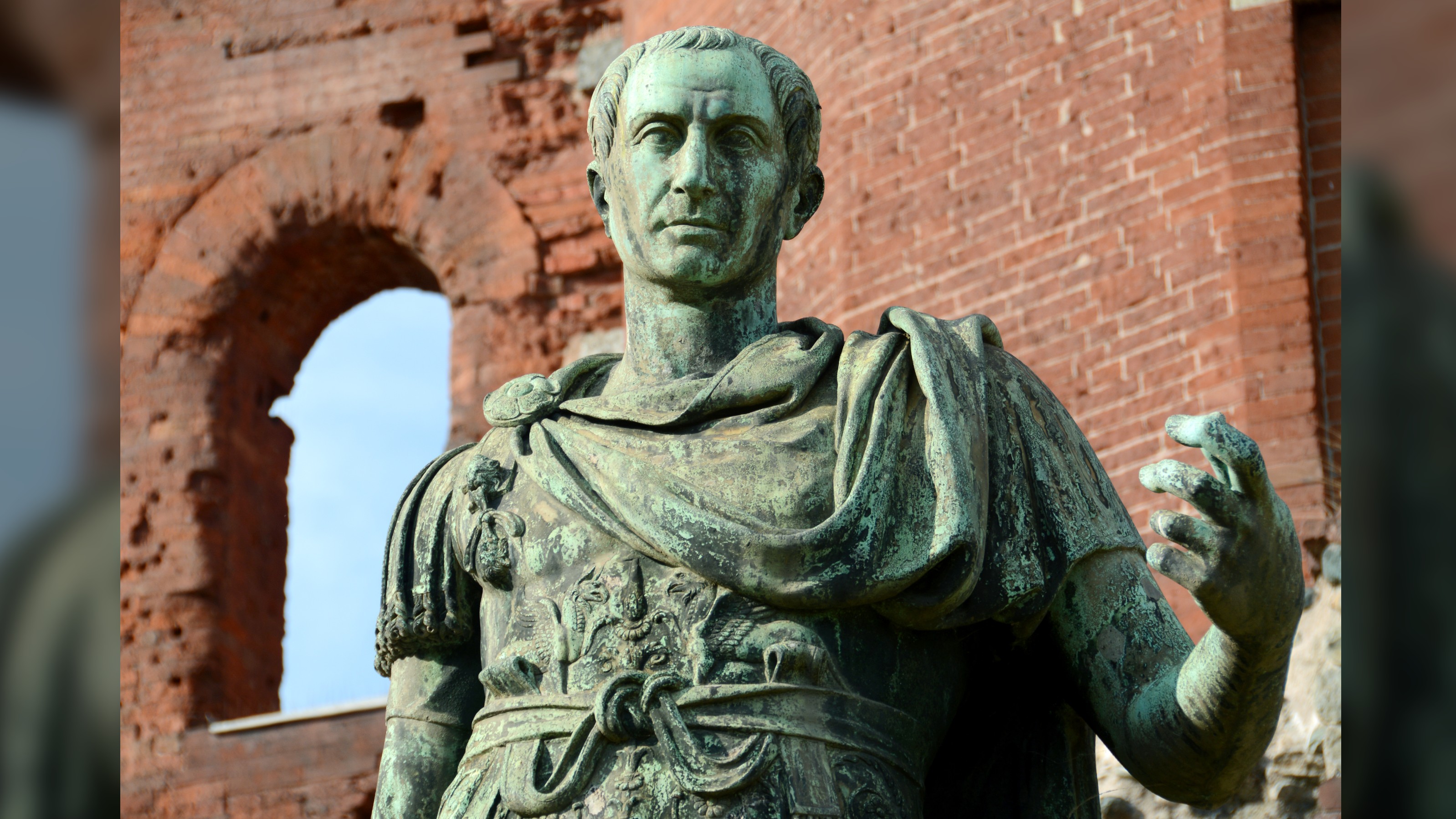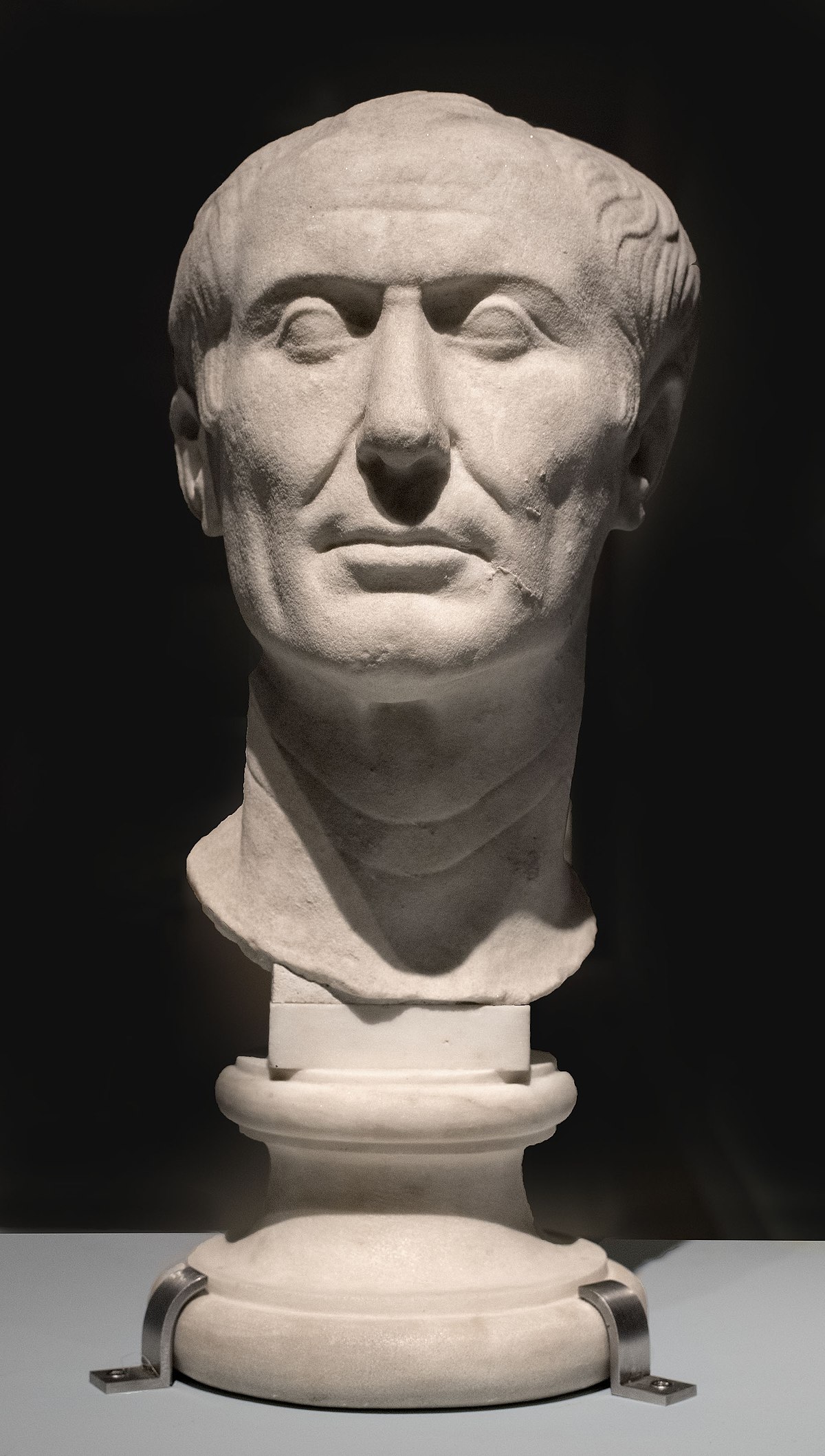
Ah, the name **Julius Caesar**—it resonates powerfully through the annals of history, evoking images of grandeur, ambition, and tragedy. But who exactly was this extraordinary individual, and what is it about his life and legacy that continues to captivate our collective imagination even today? To truly understand Julius Caesar, we must embark on a journey through his life, examining the various stages of his remarkable ascent to power, his influential reign over Rome, and the dramatic events that ultimately led to his untimely demise. Each chapter of his story is filled with intrigue, political maneuvering, and profound impact, shaping not only the Roman Empire but also the very foundations of Western civilization. Join me as we delve deeper into the life of this iconic figure, uncovering the complexities that made him both a revered leader and a controversial character in the tapestry of history.
Early Life: The Roots of a Leader

Born into Nobility
Julius Caesar entered the world on July 12 or 13 in the year 100 BCE, as a member of the illustrious Julii clan, a family that held a prominent position within the ranks of ancient Roman nobility. Although the Julii were not among the wealthiest of families, they possessed a noble heritage that could be traced back to the divine goddess Venus, which undoubtedly added a sense of prestige to their name. Imagine the weight of such a legacy resting on the shoulders of a newborn! From the very beginning, Caesar was surrounded by the expectations and responsibilities that came with his noble lineage, setting the stage for a life filled with ambition and political intrigue.
Family Tragedy
Tragedy struck when Caesar was only 16 years old, as he experienced the profound loss of his father, who passed away unexpectedly. This event marked a pivotal moment in his young life, thrusting him into a world of uncertainty and emotional turmoil. Fortunately, his mother, Aurelia, emerged as a steadfast source of support during this challenging time. With her guidance and encouragement, Caesar learned to navigate the often treacherous waters of Roman politics, developing the resilience and determination that would later define his remarkable career. Aurelia’s influence played a crucial role in shaping the man he would become, instilling in him the values and skills necessary to rise to power in a tumultuous era.
The Political Landscape of Rome

Challenges of the Roman Republic
By the time Julius Caesar embarked on his political career, the Roman Republic was engulfed in significant turmoil and unrest. The governing elite had lost much of their credibility and trust among the populace, leading to widespread dissatisfaction and agitation among the common people. The political landscape resembled a pressure cooker, teetering on the brink of explosion, as various factions vied for power and influence. The traditional methods of political competition had devolved into a frantic and often desperate scramble for control, with rivalries intensifying and alliances shifting rapidly. This chaotic environment set the stage for dramatic changes in Roman governance and society.
Caesar’s Early Political Moves
Despite his relatively modest origins, Julius Caesar was fiercely determined to carve out a prominent place for himself within the tumultuous political arena of Rome. One of his early strategic moves was to marry Cornelia, the daughter of a well-known revolutionary leader. This union not only solidified his ties to the radical faction of Roman politics but also showcased his willingness to align himself with progressive and reformist ideals. It was a daring and calculated decision that would ultimately shape his political trajectory and influence his future actions in the Republic.
Military Genius: Conquests and Triumphs

The Conquest of Gaul
Between the years 58 and 50 BCE, Julius Caesar embarked on a remarkable series of military campaigns across the region known as Gaul, which is largely modern-day France and parts of Belgium, Switzerland, and Italy. During this time, he not only demonstrated his exceptional military prowess but also fundamentally transformed the landscape of the region and significantly expanded the boundaries of Roman territory. Caesar’s strategic brilliance was evident as he employed innovative tactics and forged alliances that would ultimately lead to his victories. His ability to outmaneuver opponents and adapt to changing circumstances made him a formidable general. Imagine being in his position, where each decision could alter the course of history and the fate of nations!
Crossing the Rubicon
In the pivotal year of 49 BCE, Julius Caesar made a momentous and irrevocable decision to cross the Rubicon River, an act that would forever change the political landscape of Rome. By doing so, he effectively declared war against the Senate and the established authority of the Roman Republic. This bold move was akin to throwing down a gauntlet, signaling his readiness to confront the political elite and challenge the status quo. The phrase “crossing the Rubicon” has since become synonymous with making a decisive and irreversible choice, illustrating the gravity of Caesar’s actions. Once he crossed that river, there was no turning back, and the ensuing conflict would lead to a series of events that would ultimately reshape Rome and its governance.
Dictatorship: The Rise to Power

The First Triumvirate
Caesar formed an alliance with Pompey and Crassus known as the First Triumvirate. This partnership was a strategic move to challenge the Senate’s power. It was like forming a super team to take on the establishment!
Becoming Dictator
After defeating Pompey in a civil war, Caesar claimed the title of dictator in 46 BCE. He was now at the helm of Roman power, but this came with its own set of challenges.
Reforms and Innovations

Political and Social Reforms
Caesar wasn’t just about military might; he initiated a series of reforms aimed at improving the lives of ordinary Romans. He tackled issues like debt relief and land redistribution. Think of him as a reformer trying to bring balance to a chaotic society.
The Julian Calendar
One of his most lasting legacies is the Julian calendar, which corrected the inaccuracies of the old Roman calendar. This reform is still partially in use today! It’s like he gave the world a new way to keep track of time.
The Assassination: A Dramatic End

The Ides of March
On March 15, 44 BCE, Caesar was assassinated in the Senate House by a group of nobles, including Brutus and Cassius. This event, known as the Ides of March, was a turning point in Roman history. Imagine the tension in the air as he walked into that room, unaware of the betrayal awaiting him!
Reasons Behind the Assassination
Many believed Caesar was becoming too powerful, threatening the very fabric of the Republic. It’s a classic tale of power struggles—too much power in one person’s hands can lead to chaos.
The Legacy of Julius Caesar

A Name That Endures
Even centuries later, Caesar’s name remains synonymous with power and leadership. The titles Kaiser in Germany and Tsar in Russia are derived from his name, showing just how influential he was.
Impact on Roman History
Caesar’s life and death marked the end of the Roman Republic and the rise of the Roman Empire. His story is a reminder of how one individual can change the course of history.
Table: Key Events in Julius Caesar’s Life

| Year | Event |
|---|---|
| 100 BCE | Birth of Julius Caesar |
| 84 BCE | Marriage to Cornelia |
| 58-50 BCE | Conquest of Gaul |
| 49 BCE | Crossing the Rubicon |
| 46 BCE | Becomes Dictator |
| 44 BCE | Assassination on the Ides of March |

Julius Caesar’s life is a tapestry woven with ambition, power, and tragedy. His story serves as a cautionary tale about the complexities of leadership and the consequences of unchecked power. So, the next time you hear his name, remember the man behind the legend—a military genius, a reformer, and a figure whose legacy continues to shape our world today.

